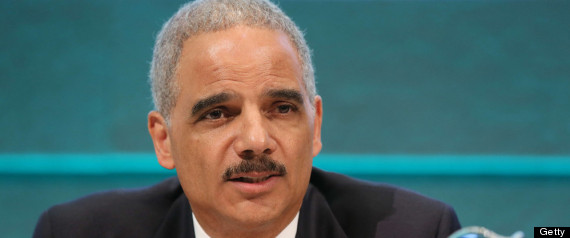Le scrivo in merito alle parole da Lei pronunciate sulla revisione del decreto Fini Giovanardi e sulle conseguenze che quello scellerato decreto ha portato.
Il problema delle carceri è infatti esploso a seguito dell' approvazione di tale decreto, sul quale sono presenti dubbi riguardo la sua stessa costituzionalità.
E' urgente una totale revisione della normativa sugli stupefacenti, seguendo le convenzioni internazionali, ma anche prendendo in considerazione l' idea che tali convenzioni potrebbero essere riscritte.
Vorrei in oltre portare la sua attenzione sull' ultimo rapporto dell' Europol riguardo la criminalità organizzata in Europa (''Serious and Organised Crime Threat Assessment'') che ha evidenziato come il traffico di stupefacenti sia la prima fonte di finanziamento delle organizzazioni criminali.
I dati più eclatanti di questo rapporto sono i numeri che riguardano le maggiori sostanze stupefacenti trafficate, che vedono al primo posto la cannabis e i suoi derivati.
Riporto una traduzione dalla stampa del trattato:
"La cannabis resta lo stupefacenti preferito, con 23 milioni di consumatori in tutto il Continente per un mercato che vale 1.300 tonnellate di hashish e 1.200 tonnellate di erba ogni anno. La cocaina resta al secondo posto con 4 milioni di consumatori che consumano 124 tonnellate annualmente."
Questi numeri sottolineano il totale fallimento della cosiddetta "war on drugs" e l' approccio che negli ultimi dieci anni è stato portato avanti dal Dipartimento per le politiche antidroga.
I vari documenti redatti da questo dipartimento sono nulla più che fogli di propaganda, privi di evidenze scientifiche, una accozzaglia di estratti scritti sotto una prospettiva ideologica, che non considera il fallimento su scala planetaria della strategia studiata nel 1998 nella sessione speciale dell'assemblea generale delle Nazioni Unite di New York. Allora dichiararono la guerra mondiale contro le droghe. Sono passati 15 anni e il risultato è che, nel mondo, non solo in Europa, il traffico di droga è la prima fonte di finanziamento del crimine organizzato, la prima causa di destabilizzazione politica in centro e sud america, la prima causa di conflitto in Afghanistan e causa di numerosi problemi in Africa, nuova via commerciale del traffico di stupefacenti dal sud America all' Europa.
Una prima ed efficace via per affrontare il problema in maniera pragmatica, è affrontare il problema della tossicodipendenza sotto un punto di vista sanitario, come già avviene in numerosi paesi dell' unione europea, come la Svizzera, l' Olanda, la Spagna, il Portogallo, la Repubblica Ceca, solo per citarne alcuni.
La dismissione del DPA, le dimissione dell' attuale direttore, Il dott. Giovanni Serpelloni, e la destinazione della delega sulle tossicodipendenze ai miniseri dell' integrazione sociale o della sanità, sarebbero il primo pilastro di una nuova politica volta al recupero e alla prevenzione all' utilizzo delle sostanze stupefacenti.
Da un punto di vista economico e sociale, come il rapporto dell' Europol evidenzia, la cannabis dovrebbe essere la priorità di discussione in un piano di revisione dell' attuale normativa sugli stupefacenti.
 Con più precisione, da un punto di vista economico, sono numerosi i premi nobel per l' economia che trovano nelle attuali politiche proibizioniste, una fonte di sprechi, inefficienze e fonte di problematiche che una tolleranza ed una tassazione sulle sostanze psicotrope sicuramente mitigherebbero.
Con più precisione, da un punto di vista economico, sono numerosi i premi nobel per l' economia che trovano nelle attuali politiche proibizioniste, una fonte di sprechi, inefficienze e fonte di problematiche che una tolleranza ed una tassazione sulle sostanze psicotrope sicuramente mitigherebbero.
Come precedentemente ricordato, le convenzioni internazionali non sono favorevoli per una legalizzazione della cannabis, ma ne riconoscono l' impiego terapeutico.
La vendita, sotto prescrizione medica, di cannabis per scopi terapeutici, così come già avviene in diciannove stati degli USA, attraverso dispensari privati di cannabis, è la soluzione più indicata per risolvere diversi problemi, senza arrivare ad una legalizzazione della sostanza.
L' impiego terapeutico della cannabis e dei suoi derivati è già stato riconosciuto dal precedente Governo Monti attraverso un decreto dell' ex ministro della Sanità.
Se come lei ha affermato, non ha ancora "iniziato una riflessione" sulla attuale normativa fallimentare sulle sostanze stupefacenti, questi potrebbero e dovrebbero essere punti dai quali iniziare.
Il problema delle carceri è infatti esploso a seguito dell' approvazione di tale decreto, sul quale sono presenti dubbi riguardo la sua stessa costituzionalità.
E' urgente una totale revisione della normativa sugli stupefacenti, seguendo le convenzioni internazionali, ma anche prendendo in considerazione l' idea che tali convenzioni potrebbero essere riscritte.
Vorrei in oltre portare la sua attenzione sull' ultimo rapporto dell' Europol riguardo la criminalità organizzata in Europa (''Serious and Organised Crime Threat Assessment'') che ha evidenziato come il traffico di stupefacenti sia la prima fonte di finanziamento delle organizzazioni criminali.
I dati più eclatanti di questo rapporto sono i numeri che riguardano le maggiori sostanze stupefacenti trafficate, che vedono al primo posto la cannabis e i suoi derivati.
Riporto una traduzione dalla stampa del trattato:
"La cannabis resta lo stupefacenti preferito, con 23 milioni di consumatori in tutto il Continente per un mercato che vale 1.300 tonnellate di hashish e 1.200 tonnellate di erba ogni anno. La cocaina resta al secondo posto con 4 milioni di consumatori che consumano 124 tonnellate annualmente."
Questi numeri sottolineano il totale fallimento della cosiddetta "war on drugs" e l' approccio che negli ultimi dieci anni è stato portato avanti dal Dipartimento per le politiche antidroga.
I vari documenti redatti da questo dipartimento sono nulla più che fogli di propaganda, privi di evidenze scientifiche, una accozzaglia di estratti scritti sotto una prospettiva ideologica, che non considera il fallimento su scala planetaria della strategia studiata nel 1998 nella sessione speciale dell'assemblea generale delle Nazioni Unite di New York. Allora dichiararono la guerra mondiale contro le droghe. Sono passati 15 anni e il risultato è che, nel mondo, non solo in Europa, il traffico di droga è la prima fonte di finanziamento del crimine organizzato, la prima causa di destabilizzazione politica in centro e sud america, la prima causa di conflitto in Afghanistan e causa di numerosi problemi in Africa, nuova via commerciale del traffico di stupefacenti dal sud America all' Europa.
Una prima ed efficace via per affrontare il problema in maniera pragmatica, è affrontare il problema della tossicodipendenza sotto un punto di vista sanitario, come già avviene in numerosi paesi dell' unione europea, come la Svizzera, l' Olanda, la Spagna, il Portogallo, la Repubblica Ceca, solo per citarne alcuni.
La dismissione del DPA, le dimissione dell' attuale direttore, Il dott. Giovanni Serpelloni, e la destinazione della delega sulle tossicodipendenze ai miniseri dell' integrazione sociale o della sanità, sarebbero il primo pilastro di una nuova politica volta al recupero e alla prevenzione all' utilizzo delle sostanze stupefacenti.
Da un punto di vista economico e sociale, come il rapporto dell' Europol evidenzia, la cannabis dovrebbe essere la priorità di discussione in un piano di revisione dell' attuale normativa sugli stupefacenti.
 Con più precisione, da un punto di vista economico, sono numerosi i premi nobel per l' economia che trovano nelle attuali politiche proibizioniste, una fonte di sprechi, inefficienze e fonte di problematiche che una tolleranza ed una tassazione sulle sostanze psicotrope sicuramente mitigherebbero.
Con più precisione, da un punto di vista economico, sono numerosi i premi nobel per l' economia che trovano nelle attuali politiche proibizioniste, una fonte di sprechi, inefficienze e fonte di problematiche che una tolleranza ed una tassazione sulle sostanze psicotrope sicuramente mitigherebbero.Come precedentemente ricordato, le convenzioni internazionali non sono favorevoli per una legalizzazione della cannabis, ma ne riconoscono l' impiego terapeutico.
La vendita, sotto prescrizione medica, di cannabis per scopi terapeutici, così come già avviene in diciannove stati degli USA, attraverso dispensari privati di cannabis, è la soluzione più indicata per risolvere diversi problemi, senza arrivare ad una legalizzazione della sostanza.
L' impiego terapeutico della cannabis e dei suoi derivati è già stato riconosciuto dal precedente Governo Monti attraverso un decreto dell' ex ministro della Sanità.
Se come lei ha affermato, non ha ancora "iniziato una riflessione" sulla attuale normativa fallimentare sulle sostanze stupefacenti, questi potrebbero e dovrebbero essere punti dai quali iniziare.






